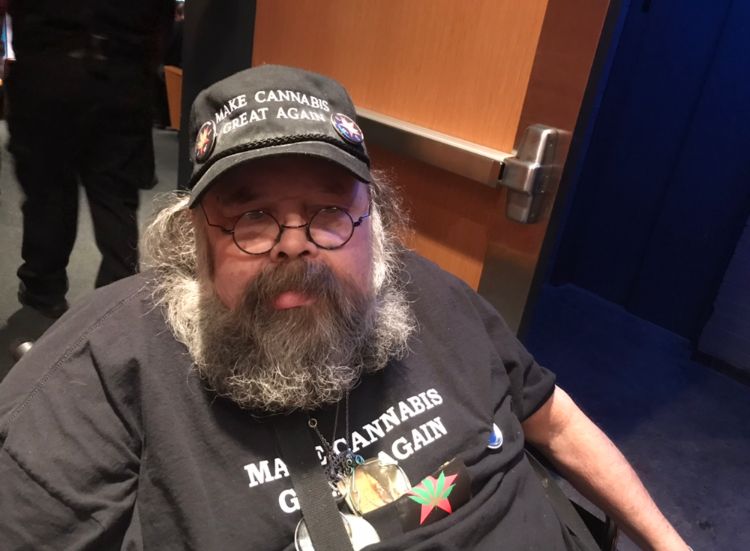A Weed Session Comes to Brooklyn: Everyone Says “Aye”


DOWNTOWN BROOKLYN – More than 300 people filed into Long Island University’s Kumble Theater Tuesday evening to weigh in on the legalization of recreational marijuana throughout New York State.
The forum is part of a series of 15 sessions occurring throughout the state with the objective of hearing community feedback into the potential development of a regulated marijuana program in New York state.
Nearly everyone who came out to the state’s “listening session” gave their stamp of approval but not without reservation as to how the state should roll out legislation for the legalization of recreational marijuana. The audience rallied around suggestions in favor of prioritizing permits for low-income residents, reparations for nonviolent marijuana offenders, revising the number of plants one can grow at home and overall low taxation on marijuana-related businesses.
More than one speaker brought up open equity programs as a solution to minimizing boundaries of entry into the marijuana industry. The measure would ensure that: a minimum of half to all permits go to Brooklyn residents, all of which who maintain a salary below a certain average median income and have either had a marijuana conviction or lived in an area for 10 of the past 20 years which has a disproportionate amount of marijuana-related arrests.
Local cannabis celebrity and one of the New York City Cannabis Parade organizers, Aron Kay, 68, of Brighton Beach came to denounce “corporate hypocrisy trying to steal the holy weed.”
“I want mass amnesty and mass reparations for all those who got snagged by the Donald Trumps, the Jeff Sessions and the Nixons,” he said.

Kay preceded a housewife and mother who said she smokes marijuana within the confines of her home and decriminalizing the plant would encourage people like her to speak openly about their usage.
“I’m a mom of two teenage boys,” she said. I’m going to go home, make dinner and I’m going to smoke some pot tonight,” she said to which she received a round of applause.
Several marijuana growers testified against high taxation and the possibility of exorbitant licensing fees which could restrict low-income residents from participating in the commerce portion of legalized marijuana for recreational use.
In Colorado — which legalized the recreational use of marijuana in 2012 — application and operating fees start at $7,000 for a new retail business according to the state’s website.
Guy Ward, who said he’s been growing marijuana for more than four decades and is working on strains that would treat Parkinson’s Disease, epilepsy and arthritis chimed in as a producer of marijuana.
“I want a law that can foster and support small researches like me and not give into big Pharma and companies like Monsanto and protect my rights to strains that I and other small researchers create,” said Ward.
The argument in favor of consumer protection and public safety also entered the conversation. Ben from Brooklyn testified to being hospitalized for a violent seizure after he was sold and smoked marijuana laced with “dissociative hallucinogen.”

“We deserve to know what product’s we’re buying as consumers,” he said. “We deserve to know that they’re sourced from a supply chain that contributes to the economy and provides jobs to people with honest intentions, who are uninterested in getting their consumers hooked on other substances.”
Although Lisa Furst of Vibrant Emotional Health acknowledged marijuana proposed minimal risk to the majority of the population, the director of the non-profit called for a targeted risk assessment, particularly youth and adults susceptible for mental health conditions.
“It would be really important for public health to have a specific focus on young people living with mental illnesses,” Furst said.
Some critics, such as Beth Kennedy, 56, of Dynamite Youth Community, Inc labeled marijuana a gateway drug and testified to the setbacks her own daughter experienced as a heroin addict when advised to substitute her addiction with marijuana.
But Kennedy was in the minority even among recovering addicts such as Jonathan T. Wright who traveled from Albany to provide testimony in favor the legalization of recreational marijuana.
Wright, a former heroin user, said prescribed meds to combat mental health issues have caused restless leg syndrome of which he finds relief only through smoking marijuana.
“Smoke weed every day,” he concluded at the end of his two-minute testimony.



